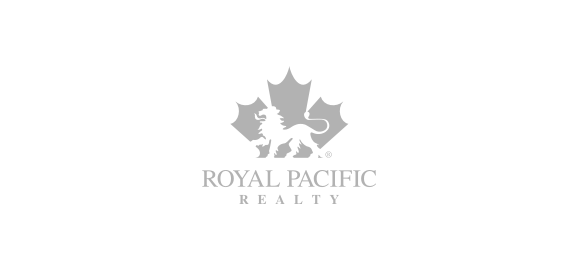- We will explore the best housing options for you based on your and your family's needs, whether for personal use or investment, considering factors such as zoning, neighborhoods, demographics, overall property prices, nearby schools, and future trends.
- We will help you choose the most suitable property from a large selection, ensuring we spend the most time searching for your ideal home.
- We will evaluate whether the market price of the "houses you are interested in" is reasonable, and how to assess price flexibility.
- We will negotiate the lowest price for you, using negotiation skills to secure the greatest benefit.
- We provide advice on adding value to your home, including renovation and improvement suggestions.
- We recommend experienced home inspectors to ensure a safe purchase and protect your interests.
- We provide information about loans and other housing services.
- Using the global electronic signature platform, Docusign, after you approve and validate the contract, you can easily use the contract anywhere, even sign it across borders. This allows you to make changes to the contract at any time. In a seller's market, amidst the competition, this greatly increases the chances of successful transactions.
- Since buying a home in BC is essentially a free service, with the commission provided by the seller, buyers can find their ideal home through me without any pressure.
Costs for Buying Homes:
Property Transfer Tax - This is a one-time tax that most real estate buyers in British Columbia are required to pay. The amount of property transfer tax depends on the market value of the property purchased. Starting from April 1, 2024, first-time homebuyers will be eligible for an exemption on the Property Transfer Tax (PTT) for homes valued up to $835,000 CAD. For buyers purchasing homes between $835,000 CAD and $860,000 CAD, a partial PTT exemption will apply, reducing but not eliminating the tax owed.
New homes (newly built properties) with a purchase price under $1,100,000 CAD, primarily used as a principal residence, may be exempt from the property transfer tax.
Property Transfer Tax Rates:
The first $200,000 CAD of the purchase price (from $1.00 CAD to $200,000 CAD) is taxed at 1%.
The portion of the price between 200,001 and 2,000,000 is taxed at 2%.
The portion between 2,000,001 and 3,000,000 is taxed at 3%.
The portion above $3,000,000 CAD is taxed at 5%.
Goods and Services Tax (GST)
Generally, GST only applies to the sale of new homes in British Columbia, such as presale condominiums or newly built single-family homes.
On the other hand, properties that have been lived in and are used for residential purposes are usually exempt from GST because it was already paid when the home was new.
The rules governing GST are complex, and there may be other factors that affect whether GST is due. You should consult a lawyer or tax professional to determine if GST is applicable.
Legal Fees
When purchasing property, multiple legal documents need to be drafted and/or submitted to the land registry to officially transfer the property from one party to another. This process is known as real estate transfer, and for residential properties (as of the writing date of this article), it typically costs between $500 CAD and $3,000 CAD, depending on the type of transaction and the steps involved. For example, whether multiple discharges or registrations are needed to ensure all property guarantees and/or financial encumbrances are cleared, or if title needs to be cleared of any encumbrances and/or financial liabilities.
Legal fees generally include:
Real estate transfer fees
Land title search fees
Discharge fees
Registration fees
Office disbursements
To lower legal fees, you can opt for a notary public, who can typically do the same work but cannot handle more complex tasks like interpreting more complicated leases and strata documents.
Home Inspection
It is recommended to have an independent home inspection as part of your due diligence process. If the home has unknown issues or problems, a home inspection could save you thousands of dollars. If you are seeking financing to purchase the home, lenders usually require a home inspection before issuing a mortgage.
The cost of the inspection mainly depends on the type and size of the property, so it can range from $500 CAD to $2,500 CAD. This is the typical amount we've encountered (as of the writing date of this article), but the actual cost will depend entirely on your specific situation and the type of property purchased.
A professional home inspector will check the property you intend to buy and report on any issues or defects related to it.
Appraisal and Land Surveying Fees
If you need an appraisal to support your mortgage application or land surveying to determine the boundaries of the property, these fees can range from $500 CAD to $2,000 CAD per item. Again, this is the typical range we've encountered (as of the writing date of this article), but the actual cost will depend entirely on your specific situation and the type of property purchased.
Title Insurance Fees
Protecting yourself from potential title issues after purchasing a home is important, and it is almost always required by lenders. Title insurance typically costs between $50 CAD and $500 CAD, and its cost is usually related to the purchase price of the property. It is generally included in the lawyer's (or notary public's) fees.
Transaction Cost Adjustments
In most property transfers, the seller typically pays certain property expenses, such as strata fees and property taxes, on behalf of the buyer. Conversely, the buyer may pay costs that benefit the seller. Therefore, before the transaction is completed, lawyers or notaries usually prepare a settlement statement, where the seller and buyer will negotiate these amounts to determine the final amount required to complete the sale.
Contact us now at 604-600-5777

